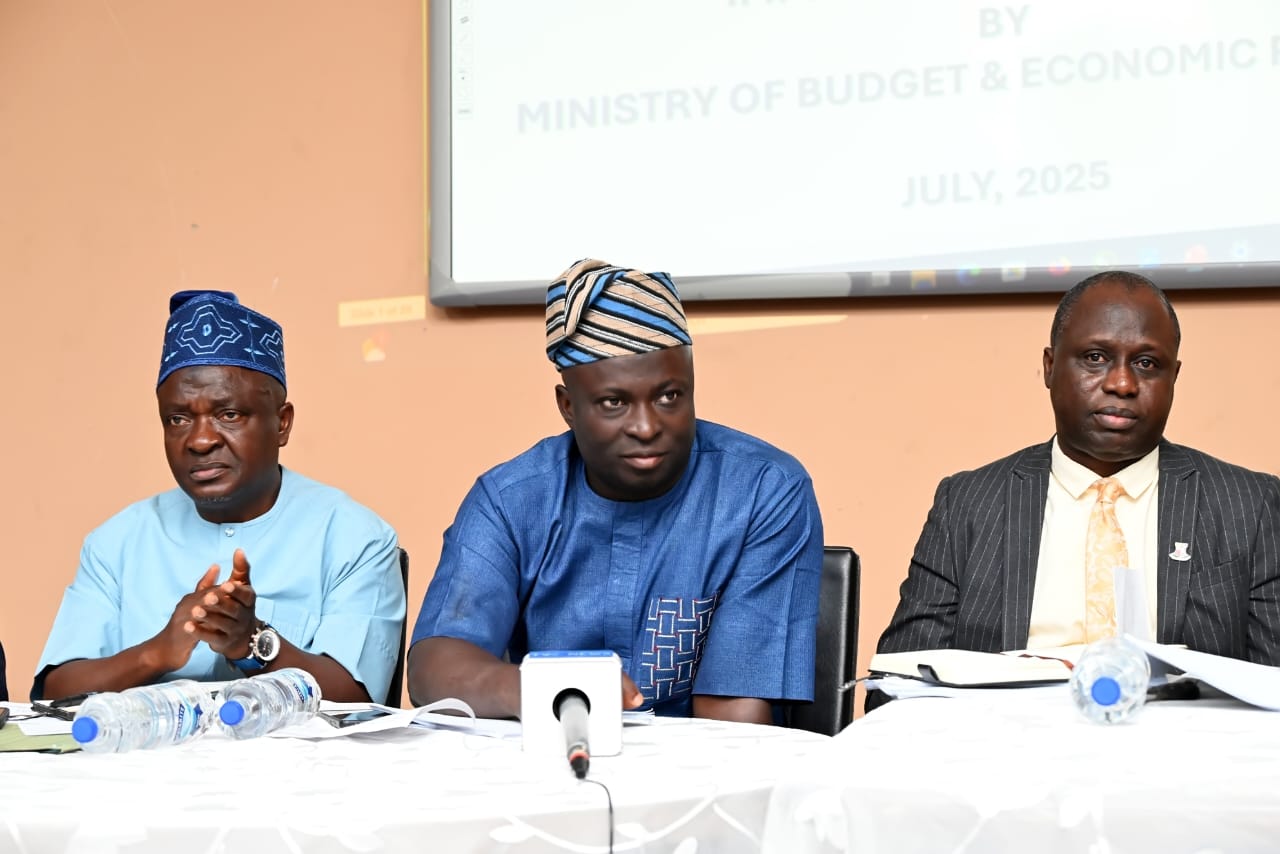The Oyo State Government has announced the approval of ₦5.4 billion for the implementation of the second phase of the Sustainable Actions for Economic Recovery (SAfER) programme, targeting key sectors such as agriculture, transportation, healthcare, and small and medium-scale enterprises.
This was disclosed by the Commissioner for Budget and Economic Planning, Professor Musibau Babatunde, during the presentation of the 2025 Mid-Year Budget Implementation Report for Quarters 1 and 2, held at the Local Government Staff Training School, Secretariat, Agodi, Ibadan.
According to Babatunde, Oyo State achieved 80 percent revenue performance and 69 percent expenditure performance between January and June 2025, indicating significant progress in the implementation of the ₦500 billion 2025 “Budget of Stabilisation.”
He noted that the 2025 Budget was formulated through a participatory process involving stakeholders across the state’s seven geopolitical zones. As part of Governor Seyi Makinde’s commitment to transparency and accountability, the government approved quarterly performance reviews and stakeholder engagements beyond budget preparation.
“This presentation offers a feedback mechanism for stakeholders to assess our achievements, challenges, and opportunities. It also allows us to refine implementation strategies using input from the same stakeholders who contributed to the budget formulation,” the Commissioner stated
He emphasized that citizen-nominated projects are integral part of the current budget, and ongoing engagement would ensure alignment with public priorities.
Highlighting the state’s fiscal performance, Babatunde said: “For the half-year, we have recorded about 80 percent revenue performance, and expenditure stands at around 69 percent pro rata.
“This is a good outlook, especially considering that it doesn’t yet include some approvals, which will be captured in Quarter 3.”
He addressed concerns about increasing revenue, noting that while Federal Allocation (FAAC) and Internally Generated Revenue (IGR) have improved, so have state expenditures including the new ₦80,000 minimum wage, mass recruitment of teachers, civil servants, and health workers.
Speaking on economic pressures, Babatunde said Oyo had the lowest food inflation rate in the country as of April 2025, thanks to the SAfER interventions.
“Our input support to farmers across livestock, fishery, and crop production has started yielding output. These results explain the decline in food prices,” he explained.
He stressed the need for a general equilibrium perspective, saying: “We must match revenue gains with the responsibilities they fund from infrastructure to public welfare and security.”
According to the Commissioner, the newly approved SAfER II package will channel ₦5.4 billion into supporting: Small and Medium Enterprises (SMEs),
Farmers in livestock, poultry, fishery, and crop production as well as Transportation services, and healthcare sector.
Prof. Babatunde said the intervention would improve livelihoods, enhance productivity, and further reduce inflationary pressure in the state.
The Commissioner equally reaffirmed the government’s focus on its four-point service agenda namely Education–with ₦10 billion approved for the first phase of school rehabilitation across secondary schools, Security–sustained investment to ensure safety and business-friendly environments, Health and Social Welfare–continued support through SAfER and other programmes, and Infrastructure–ongoing enhancement of rural roads under the RAAMP initiative.
In their separate goodwill messages, Alhaji Gafar Bello (Executive Assistant to the Governor on Budget and Economic Planning) and Dr (Mrs) Adenike Fashina (Permanent Secretary, Ministry of Finance) emphasized the value of the mid-year review in guiding resource allocation and eliciting citizen feedback.
Commendations also came from civil society, including Prince Oyebade Oyedepo (former South-West chairman, ICAN) and Mr Jide Bamgbose (Justice Development and Peace Commission), who praised Governor Makinde for promoting fiscal transparency and inclusive governance.
The event was attended by senior government officials, including Hon. Simeon Oyeleke (Special Adviser on Budget and Economic Planning), Mr Kehinde Ogunsanya (Senior Special Assistant on Economic Planning), Mrs Kikelomo Adegoke (State Accountant-General), and representatives from CSOs and all 33 local government areas.

